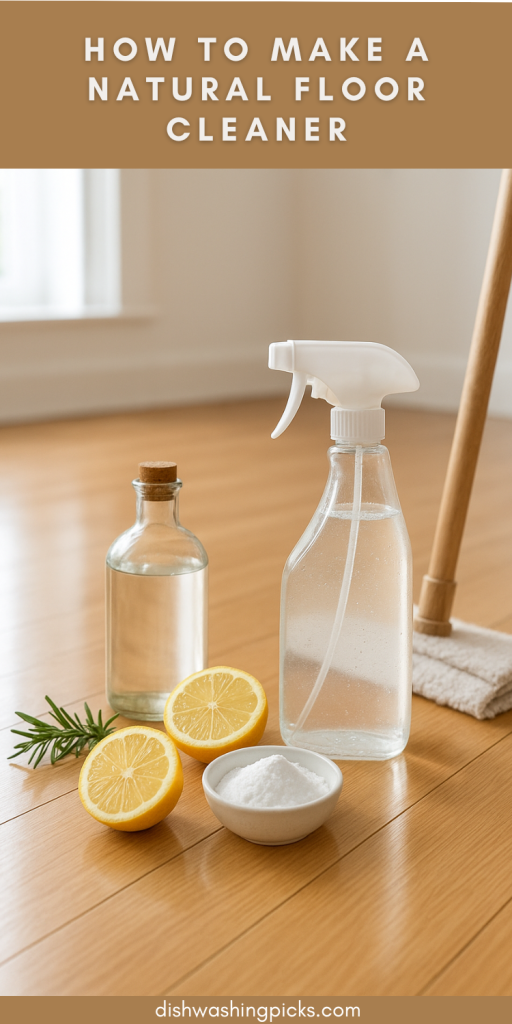
Ever mop your floors and think, “Do I really need to use all those harsh chemicals just to get my floors clean?” Yeah, me too. The good news is—you don’t have to. A natural floor cleaner can do the job just as well, without leaving behind that chemical smell or worrying about pets, kids, or your eco-conscious side.
Why Choose a Natural Floor Cleaner?
You might be asking, “Is it really worth switching?” Absolutely. Here’s why:
- Safe for everyone – no toxins for your kids or pets to walk through
- Gentle on surfaces – no stripping your wood or tile finish
- Environmentally friendly – fewer chemicals going down your drains
- Cost-effective – uses ingredients you probably already have at home
Imagine mopping your floors, breathing easy, and knowing that your cleaner is working without harming your home or the planet. Feels good, right?
Ingredients You’ll Need
Making a natural floor cleaner is easier than you think. The basic ingredients include:
- Warm water – the base of every good mop solution
- White vinegar – breaks down grime and disinfects naturally
- Liquid castile soap – gentle but effective for cutting dirt
- Essential oils (optional) – for a nice scent and added antibacterial properties (think lemon, lavender, or tea tree)
Quick tip: Avoid using vinegar on natural stone floors like marble or granite—it can etch the surface.
How to Make Your Natural Floor Cleaner
Here’s a simple recipe that works on most surfaces:
- Prep Your Bucket
Fill a bucket with about 1 gallon of warm water. - Add Cleaning Ingredients
- 1/2 cup white vinegar
- 1 teaspoon liquid castile soap
- 5–10 drops of essential oil (optional)
- 1/2 cup white vinegar
- Mix Gently
Stir the mixture without creating too many bubbles—no one likes a foamy mop! - Mop Away
Dip your mop, wring it out, and start cleaning. For extra dirty areas, you can sprinkle a little baking soda directly on the floor and mop over it. - Rinse (Optional)
For floors that are sensitive to vinegar, rinse with plain water after mopping to avoid any residue.
How to Use It Around the House
- Tile floors – great for kitchens and bathrooms
- Laminate floors – cleans without damaging the finish
- Vinyl floors – removes dirt and keeps them shiny
- Wood floors (sealed) – gentle enough not to strip the sealant
Imagine gliding your mop across the floor and seeing grime disappear instantly, all while filling your home with a subtle, natural fragrance. Bliss.
Tips for Best Results
- Mop once or twice a week to maintain clean floors
- Always wring out the mop well—excess water can damage some floors
- Store leftover cleaner in a labeled spray bottle for quick spot cleaning
- Avoid harsh scrubbing on delicate surfaces; let the natural cleaner do the work
Wrapping It Up
Making a natural floor cleaner is quick, easy, and way less stressful than dealing with chemical-laden options. You’ll get sparkling floors, a pleasant scent, and peace of mind knowing you’re keeping your home safe and eco-friendly.
Next time you reach for that heavy chemical bottle, try mixing your own natural solution. Your floors—and your family will thank you.
